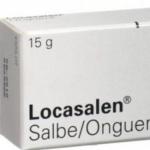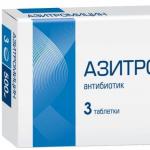The protocol and conclusion developed at PMPC are. Recommendations for parents (legal representatives) on preparing for the PMPK
The state has created special organizations - psychological, medical and pedagogical commissions (PMPK) in order to timely identify children with disabilities in the physical and (or) mental development and (or) deviations in behavior, carrying out their complex psychological, medical and pedagogical examination and preparing, based on the results of the survey, recommendations for providing them with psychological, medical and pedagogical assistance and organizing their training and education, as well as confirming, clarifying or changing previously given recommendations.
PMPK specialists should give recommendations on the organization of education for children with disabilities health.
However, it must be understood that PMPK specialists usually see a child for the first time, and even within a short period of time. Unfamiliar surroundings, strangers, waiting in line, and other circumstances do not contribute to the development of a child with disabilities to reveal their actual abilities and potential educational opportunities.
How can we help PMPK specialists? For this to passing PMPK need to prepare. The main goal of such training is to provide the commission with the maximum amount of information about the child's abilities and capabilities.
It is indisputably better to get recommendations and opinions from specialists who are directly involved with the child. Written recommendations (characteristics, conclusions) of specialists are objective data for the formation by employees of an opinion about the abilities and capabilities of the child in a situation of insufficient opportunities for a long and versatile examination of the child. Such recommendations (characteristics, conclusions) will become the basis for appealing the PMPK conclusion, if the need arises, - the basis for the complaint will be not just the opinion of the mother, but the opinion of a specialist. Conclusions and characteristics can be obtained from teachers, psychologists, doctors.
If there is no opportunity to get recommendations from specialists, then parents should independently collect any sources of information about the child, with the help of which the members of the commission can demonstrate his capabilities: drawings and other results of the child's independent productive and creative activity; written works in Russian (native) language, mathematics; video recording of activities with a child, including home; activities in which the child participated - everything that, in the opinion of the parents, will help to gain an idea of \u200b\u200bthe needs and capabilities of the child. The task of parents is to give as much information as possible about the child for an objective assessment of his capabilities.
What information about the child should be reflected in the conclusions of the specialists with whom the child is engaged, or the parents:
1) peculiarities of the child's behavior, including in an unfamiliar environment, after long periods of waiting (for example, in a queue), with strangers - most likely, it is in such conditions that the child will have to demonstrate his capabilities in front of the PMPK specialists. It is also necessary to assess in advance the compliance of the child examination procedure established in the PMPK (ask the PMPK staff about it), the child's capabilities and, if necessary, ask to change it. The examination procedure depends entirely on the psychophysical capabilities of the child. The examination can be carried out at the place of residence or education of the child, by each PMPC specialist individually or by several specialists at the same time. Based on the characteristics of the child, in the written application submitted when registering for the PMPC, it is advisable to indicate the desired parameters of the examination procedure - the exact time of the beginning, an individual examination by each specialist, an examination at the place of study. To substantiate such wishes, information is needed about the characteristics of the child's behavior;
2) not only the child's problems should be described (what he does not know how to do in comparison with his peers), but also what he learned in the course of classes; features of the child's behavior in the learning process and the features of the very process of his learning, methods and means that help him cope with his problems, learn effectively;
PMPK - is a state consultative and diagnostic, correctional institution in the system specialized assistance children with disabilities in psychophysical development, with problems in learning, communication, behavior. PMPK performs the function of the highest expert service in determining the type and forms of education for children.
The PMPK is a permanent interdepartmental structure, one commission is created for 100 thousand children living in one territory, but at least one in the territory of each constituent entity of the Russian Federation.
PMPK solve the issues of recruiting special (correctional) institutions, and also provide consultative, diagnostic and correctional assistance to everyone who needs it.
The main TASKS of the PMPK are:
- examination of children with certain deviations from normal mental development;
- diagnostics of these deviations;
- definition of special educational needs child;
- recruiting of special (correctional) educational institutions;
- counseling parents on the physical and / or mental deficiency of the child;
- formation of a data bank about children with developmental disabilities, the structure of children's pathology.
COMPOSITION OF PMPK:
The head of the PMPK is a chairman representing the Committee (Department) of Public Education, and his deputy is a representative of the Health Committee. The staff of the PMPK includes a psychologist, doctors (psychiatrist, neuropathologist, orthopedist, otolaryngologist, ophthalmologist, therapist or pediatrician), special teachers (speech therapist, oligophrenic, deaf, typhoid teacher), social teacher, lawyer, representatives of educational authorities , health care, social protection. Individual specialists can be involved in work on a contractual basis.
In its pMPK activities is guided by the International Convention on the Rights of the Child, as well as the applicable laws of the Russian Federation on education, health care, protection of children's rights and orders of the Russian Government.
BASIC PRINCIPLES OF THE PMPK
1) PRINCIPLE OF FAMILY CENTERED - PMPK specialists interact not only with the child, but also with the family (people from the immediate environment of the child).
2) PRINCIPLE OF PARTNERSHIP - the activities of specialists are aimed at establishing partnerships with the child and his family.
3) PRINCIPLE OF VOLUNTARY - parents independently make a decision about contacting pMPK system and the inclusion of their families in the service program.
4) OPEN PRINCIPLE - PMPK responds to the request of any family or child proponents concerned about his development.
5) PRINCIPLE OF CONFIDENTIALITY - information about the child and the family, available to the PMPK specialists, cannot be disclosed or transferred without the consent of the family.
6) PRINCIPLE OF RESPECT FOR THE PERSONALITY OF THE CHILD - specialists of the PMPK accept the child as a full-fledged person, regardless of age and level of development.
7) PRINCIPLE OF RESPECT FOR THE PARENT'S PERSONALITY - respecting the personality of the parent, PMPK specialists accept his opinion about the child, his personal experience, decisions and expectations.
8) PRINCIPLE OF PROFESSIONAL RESPONSIBILITY - PMPK specialists are responsible for the decisions and recommendations that affect the interests of the child.
9) PRINCIPLE OF INFORMATION CONSENT - PMPK gives parents / legal representatives sufficient, understandable information about their activities and about the child, seeking consent to participate in the survey and accept help.
Currently, there are various organizational forms of PMPK activity in the country: multidisciplinary commissionsthat complement various correctional educational institutions; profilecarrying out the acquisition of institutions of the same type; permanent and temporary, formed only for the period of acquisition of educational institutions.
Taking into account the administrative division, republican, regional, city, regional, district and inter-district PMPK are created.
The PMPK examines children and adolescents under 18 years of age. Parents have the right to be present at the examination of children, but any kind of interference is excluded. Teenagers over 12 years old who applied to the PMPK themselves can be accepted without parents.
Children are sent to the PMPK at the request of their parents or at the initiative of the bodies and institutions of education, health care, social protection with the consent of parents or persons replacing them (guardians). If the referral is by court order, parental consent is not required.
If a child is sent to PMPK on the initiative of educational institutions, the following documents must be submitted:
- birth certificate (presented);
- a detailed extract from the history of the child's development with the conclusions of doctors (pediatrician, neuropathologist, otolaryngologist, ophthalmologist, orthopedist);
- pedagogical characteristics, reflecting a detailed analysis of development, indicating pedagogical assistance and its effectiveness;
(It is necessary that the PEDAGOGICAL CHARACTERISTIC should not only list what the child did not learn, his shortcomings, but also indicate the nature of the difficulties experienced by the child, how he was helped to overcome them. The characteristic also notes the positive qualities of the child that can be used in further work with him. The content of the characteristics should include formal data about the child with the obligatory indication of the period of his stay in kindergartenteaching at school; family information; information about features cognitive activities, data on self-service skills; about the features of the emotional-volitional sphere; materials characterizing personality traits.) The presence of this information is not a formal requirement. Careful design of materials characterizing the child will help the members of the consultation to build the survey more correctly, to determine the main goal of their work as identifying and establishing the causes of difficulties that most interfere with the development of the child.
- written works, drawings that reveal the dynamics of a child's development;
- the conclusion of the psychological, medical and pedagogical council.
In PMPK, when carrying out work on acquisition, the following DOCUMENTATION is maintained: a register for the PMPK and a register for children who have passed the examination; protocols recording the course of the examination; archive with files of children taken out of the system of correctional and developmental education, and duplicates of the PMPK conclusion. The accounting log is kept in the PMPK. The log records the following information:
- date of examination;
- FULL NAME. child;
- year, day and month of birth;
- location;
- in what institutions and for how many years he was brought up or trained;
- by whom was directed to the PMPK;
- reason for referral to PMPK;
- brief information about the parents;
- note.
In the column " Note»Indicates the parents' compliance with the recommendations of the consultation. Although the right to choose an institution for further education and upbringing of the child remains with them, it is very important that the members of the PMPK do everything possible to persuade them to do as the child's interests require.
The entire course of the child's examination in the consultation is recorded in PROTO-KOLA by a qualified specialist (medical statistician) and stored in the child's personal file, which is transferred to the institution where he is sent. The protocols help teachers to get acquainted in advance with the personality traits, the quality of knowledge, the characteristics of psychophysical development, which must be taken into account from the first days of a child's stay in a kindergarten or school. In addition, protocols are necessary to record the dynamics of development, especially in cases where the child is re-referred to PMPC. (Comparing the obtained data with the protocol of the previous survey, one can judge the changes that have occurred over the past period). The protocol helps the PMPK members to draw up a detailed report about the child. He remains in a personal file.
Based on the data of the individual examination of the child, each specialist of the consultation draws up a CONCLUSION about the nature of the deviations. A collegial decision is made on the place of further correctional education and training, taking into account his psychophysical and individual characteristics... Specific RECOMMENDATIONS are given.
When deciding on the type of educational institution, the parents have the final say: according to the Law of the Russian Federation "On Education", they are the ones who decide where their child will study. In case of disagreement between the wishes of the parents and the recommendations of the PMPK, it is necessary:
- to describe in detail the advantages and disadvantages of differentiated and integrated learning in a given developmental deviation and the degree of its severity;
- to find out the possibilities of the family in providing specialized assistance to the child in the event that the parents insist on his education in a general education school;
Lists of examined children and adolescents with PMPK recommendations are transferred to the relevant bodies of public education, social health services, etc. Parents (persons replacing them) are issued a conclusion with appropriate recommendations (without specifying a diagnosis).
The sending of children to a special institution is carried out by the public education authorities on the basis of the recommendations of the PMPK in strict accordance with the instructions for admission to each special institution.
MEDICAL EXAMINATION includes ophthalmological, otolaryngological, somatic, neurological and psychiatric examination of the child. If necessary, paraclinical examinations are carried out (REG, EchoEG, EEG, audiography and other laboratory tests). Anamnesis is being collected. All these studies are carried out by doctors. Neither a defectologist nor a psychologist has the right to deal with them, but it is important for them to know how certain unfavorable factors affect the development of children, what are the features of their psyche. Data from the history of the child's development, obtained by the doctor during a conversation with the mother, as well as objective indicators of the child's condition based on the materials of medical reports, will help to choose a strategy for psychological and pedagogical examination.
During the PSYCHOLOGICAL AND PEDAGOGICAL EXAMINATION, the peculiarities of the child's mental development are revealed; it turns out when the skills of neatness, self-service, communication with children began to form; the state of motor skills, the nature of the game, etc. are determined. It is obligatory to study not only individual mental processes, but also the personality as a whole. If children are not yet in school, then it is necessary to determine their readiness to schooling - to establish the level of mental development, emotional-volitional and social maturity. It is very important to study the ability to regulate behavior and self-control; no less important is the presence of psychological qualities necessary for adaptation in the children's team.
In cases where children go to school, the nature and causes of their learning difficulties are established. The indicators of learning are the ability to generalized mental activity, flexibility of mental processes, the rate of assimilation teaching material and others, as well as how the child uses the help. The nature and measure of this assistance, the possibility of transferring the shown method of activity to a similar task is taken into account.
PSYCHOLOGICAL EXAMINATION is carried out by a psychologist. He analyzes the causes of the observed phenomena, gives a forecast and recommendations for the correction of mental functions, motivational-volitional and emotional-personal spheres. In conclusion, he indicates a complex psychological prognosis of development. If necessary, a neuropsychological examination is carried out.
PEDAGOGICAL EXAMINATION includes the identification of general awareness, the formation of educational skills, knowledge of writing, reading, mathematics, etc. conducted by a defectologist. In his conclusion, he reflects not only the established current level of the child's development, but also specifies in detail the necessary techniques for working with him. His recommendations are useful for both educators and parents.
LOGOPEDIC EXAMINATION is carried out by a speech therapist (in cases where there is a need for this). The content of speech therapy study includes an examination of the articulatory apparatus, impressive (phonetic hearing, understanding of words, simple sentences, logical and grammatical constructions) and expressive (repeated, nominative, independent) speech. Investigated and written speech children, as well as speech memory. The speech therapist needs to identify the structure of the speech defect and establish the level of speech underdevelopment in children. The tasks of a speech therapist include: to distinguish between children with primary speech disorders (and, as a consequence, with mental retardation) and children whose speech underdevelopment is caused by mental retardation.
Each of the members of the consultation commission has its own area of \u200b\u200bwork, but the CONCLUSION is made by all specialists based on the analysis of all information received about the child. It is important not only to make a diagnosis and write a conclusion, but it is also necessary to substantiate them by highlighting the main symptoms of this condition. In cases where children are sent to a special (correctional) school, it is advisable to give recommendations for working with them.
On the basis of PMPK, group and individual sessions with children who, for various reasons, cannot attend special educational institutions. The content and methods of work in these classes are determined by the level of psychophysical development of children, their age, the tasks of psychological, medical and pedagogical correctional work (preparation for school, the formation of self-regulation, etc.).
The duties of the PMPK members also include the promotion of medical, psychological, pedagogical, defectological knowledge among parents, teachers, and the population, which should contribute to the prevention of developmental deviations and the provision of timely corrective assistance.
First, it is necessary to clarify whether all of you know the decoding of the abbreviation PMPK
PMPK Is a psychological, medical and pedagogical commission.
You, as parents (legal representatives), must clearly understand the purpose of applying to the PMPK.
Please note that the commission:
PMPK not makes decisions on the need for individual education of the child (this issue is resolved in a medical institution).
PMPK not leaves the child for re-education and does not transfer from class to class (this issue is resolved in an educational institution).
PMPK not completes compensatory orientation groups and classes that implement adapted basic educational programs for children with disabilities (this function is performed by the District Education Department).
The purpose PMPK isidentification of children with peculiarities in physical and (or) mental development and (or) deviations in behavior,holding their complex psychological, medical and pedagogicalsurveys and preparation of recommendations to provide them with psychological, medical and pedagogical assistance and the organization of their training and education.
The examination of children at the PMPC can be carried out on your initiative (legal representatives), health authorities, social protection, educational institutions, in the latter case, your consent must be obtained.
The examination of children is carried out only in the presence of parents (legal representatives), it is better if it is a mother, since it is she who will be able to answer the questions of specialists in collecting information about the course early development child, if the need arises, in exceptional cases - by power of attorney.
Pre-registration for examination is also carried out with the consent of the parents. Parents give their consent to the processing of personal data.
The survey is carried out only with all the necessary documents.
1. Application of parents (legal representatives) for examination of the child.
2. Extract from the minutes of the pedagogical council of the educational
institutions or escort services, indicating the reason for the withdrawal to the PMPK).
3. The form of the protocol of the examination of the child of the municipal psychological and medical
pedagogical commission
4. Passport of parents (legal representatives), order
local government administration on the placement of the child in a foster family (if the child is under guardianship).
5. Child's birth certificate (original).
6. Outpatient medical record of the child.
7. Power of attorney for the person representing the child at the psychological, medical and pedagogical commission, if the parents are unable to attend the meeting of the commission.
8. Pedagogical characteristics per child from educational
the institution he visits.
9. Conclusion (reference) of the speech therapist about the level speech development child indicating the diagnosis.
Speech therapist's help for initial screening
Speech therapy presentation for re-display
10. Psychological representation of the child (characteristic
a teacher-psychologist), Weksler's test (for schoolchildren from 9 years old).
If the educational institution does not have a teacher-psychologist, one of the teachers (educator, class teacher, social teacher and others) fills in the psychological and pedagogical presentation (from grade 2 you can invite a psychologist from the "Center of the PMSS" to conduct the Veksler test).
11. Personal file and diary of a student of an educational institution.
12. The results of the student's / pupil's activity in
educational institution:
notebooks for the Russian language, mathematics (work and control).
the results of control or independent work, verified
teacher, performed on separate sheets.
Drawings and other results of self-productive
activities of the student / pupil.
13. - individual program rehabilitation (IPR) of a disabled child.
When passing the examination for PMPK child must be physically healthy. Feeling unwell may affect the test results. Be sure to inform about the child's illness and cancel your visit to PMPK that day.
A few days before the examination, in a relaxed manner, remember with the child the home address, information about the parents (name, profession), talk about the current season.
Create a positive attitude towards examination in the child: set up the preschooler to play activities with specialists, and the student to communicate with teachers.
Remain calm before and during your PMPC exam. Remember that your anxiety can be passed on to your child.
Calculate the time so as to come to the commission in advance, hand over the prepared documents to the members of the commission, slowly, undress your outerwear.
Comprehensive psychological, pedagogical and medico-social examination of a child at the PMPK is carried out collectively or by each specialist in stages, which is determined by the objectives of the examination, age and individual psychophysical characteristics of the child.
The examination of children is carried out at the premises of the commission. If necessary and in the presence of appropriate conditions, examination of children can be carried out at the place of their education.
Examination of children before school age is carried out in accordance with the age and program requirements of the main general education program preschool education, children of school age - in accordance with the requirements of the programs of primary or basic general education.
The time of examination of each child depends on his individual (age, psychophysical, etc.) characteristics, therefore the time of examination at the PMPC may not coincide with the time of the preliminary appointment. In order to help the child calmly wait for the examination, take his favorite toy, book with you, offer the child something to eat (juice, fruit, cookies, etc.).
Inform the members of the commission if the child undergoes the examination again (it is necessary to name the date of the last examination) and present the conclusion issued based on the results of the previous examination.
During the examination, do not prompt the child, do not distract him with comments and remarks. If necessary, the child will be assisted by a specialist conducting the examination.
With a child, do not say the phrase "he (she) is shy", "he (she) does not like to learn poetry, to tell", "he (she) does not know how", "he (she) does not answer in front of strangers", "he (she) reads badly, "because you are setting yourself up for such behavior.
After the examination, praise the child, even if he did not answer exactly as you expected.
Based on the results of the survey, collegial opinion PMPK containingrecommendation to determine the training program, taking into account the opinion of each specialist.
The conclusion is a document confirming the right of children to ensure optimal conditions for their education.
The conclusion of the PMPK is the basis for enrolling a child (only with the consent of parents or legal representatives) in a special (correctional) educational institution, a special (correctional) class, group and is kept during the entire time of the child's stay in an educational institution.
Information about the child, the results of diagnostics are entered in the register of children who have passed the examination. Parents are given pMPK conclusion fromrecommendations for the further education of the child.
PMPK has the right to suspend the provision of municipal services for examining a child in the event of:
Lack of documents required for the examination, provision of inaccurate information, as well as the state of health of the child and parents (legal representatives).
The examination can be postponed to a later date.
PMPK specialists are guided by the following principles:
The principle of family centering- PMPK specialists interact not only with the child, but also with the parents (legal representatives)
- The principle of partnership - the activities of specialists are aimed at establishing partnerships with the child and his parents (legal representatives)
- The principle of voluntariness - parents make their own decisions about applying to the PMPK system
- The principle of openness - The PMPK responds to the request of any family or person representing the interests of the child who is concerned about his development.
- Confidentiality principle - information about the child and family, available to PMPK specialists, is not subject to disclosure or transfer without parental consent.
- Respect for the personality of the child - PMPK specialists accept a child as a full-fledged person, regardless of age and level of development.
- The principle of respect for the person of the parent - respecting the personality of the parent (legal representative), PMPK specialists accept his opinion about the child, his personal experience, decisions and expectations.
- The principle of professional responsibility - PMPK specialists are responsible for decisions and recommendations that affect the interests of the child.
- Informed consent principle - by seeking consent to participate in the examination and assistance, the PMPK gives parents (legal representatives) information about their activities and the child that is sufficiently understandable for understanding.
Remember that PMPK specialists are guided by the above principles and interests of the child.
Sycheva Elena Vladimirovna,
teacher-speech therapist, head of the CPMPC
Rozova Natalia Gennadievna,
teacher-defectologist, deputy head of the CPMPC
PMPKIs a psychological, medical and pedagogical commission.
The Central Psychological, Medical and Pedagogical Commission (TsPMPK) functions in the BOU VO "Regional Center of PMSS".
TsPMPK carries out its activities within the Vologda region. 10 municipal districts (Vashkinsky, Vozhegodsky, Vologodsky, Vytegorsky, Gryazovetsky, Mezhdurechensky, Sokolsky, Syamzhensky, Kharovsky, Ust-Kubinsky) and the city of Vologda are territorially assigned to the CPMPK.
How to prepare for examination at the CPMPC?
1. Parents (legal representatives) must clearly understand the purpose of applying to the CPMPC.
Please note that the commission:
TsPMPK not makes decisions on the need for individual education of the child (this issue is resolved in a medical institution).
TsPMPK not leaves the child for re-education and does not transfer from class to class (this issue is resolved in an educational institution).
TsPMPK not completes compensatory focus groups and classes that implement adapted basic educational programs for children with disabilities (this function is performed by the Education Departments of the city of Vologda and municipal districts of the Vologda region).
The purpose of the CPMPK is identification of children with peculiarities in physical and (or) mental development and (or) deviations in behavior, holding their complex psychological, medical and pedagogical survey and preparation of recommendations to provide them with psychological, medical and pedagogical assistance and the organization of their training and education.
2. Prepare all necessary documents:
Mandatory documents:
Identity document of the parent (legal representative) (passport)
Documents confirming the authority to represent the interests of the child (decree on transferring the child to foster care, issued by the guardianship and guardianship authorities, certificate of adoption; certificate of guardian / trustee)
A copy of the child's passport or birth certificate (provided with the presentation of the original or a duly certified copy)
A detailed extract from the history of the child's development with the conclusions of the doctors who are observing the child in the medical organization at the place of residence (registration)
Psychiatrist's referral (for children over 3 years old)
Neurologist's conclusion (for children under 3 years old)
Characteristics of a student issued by an educational organization






